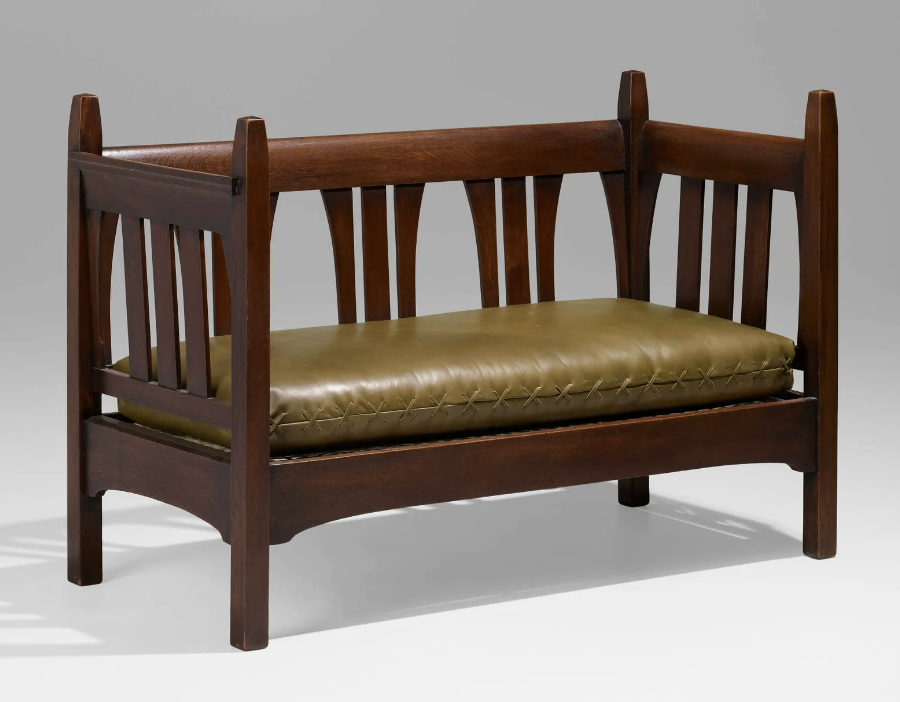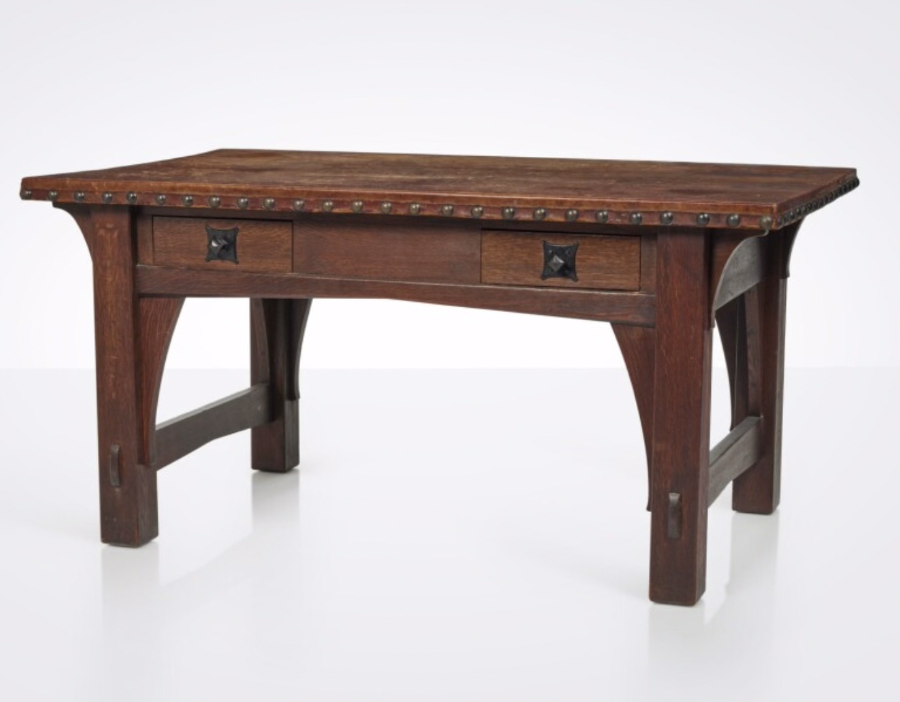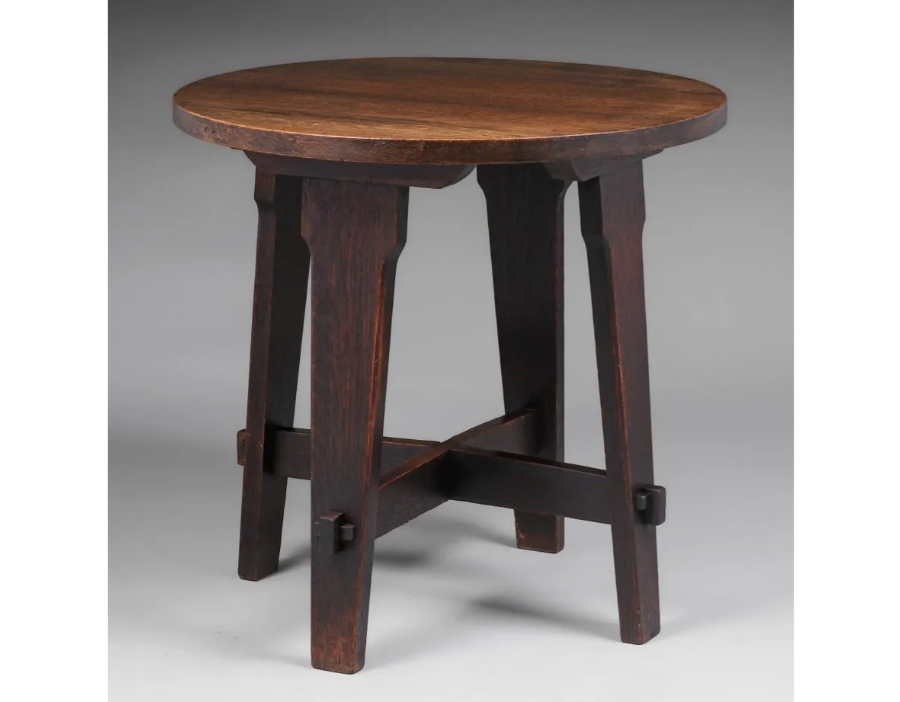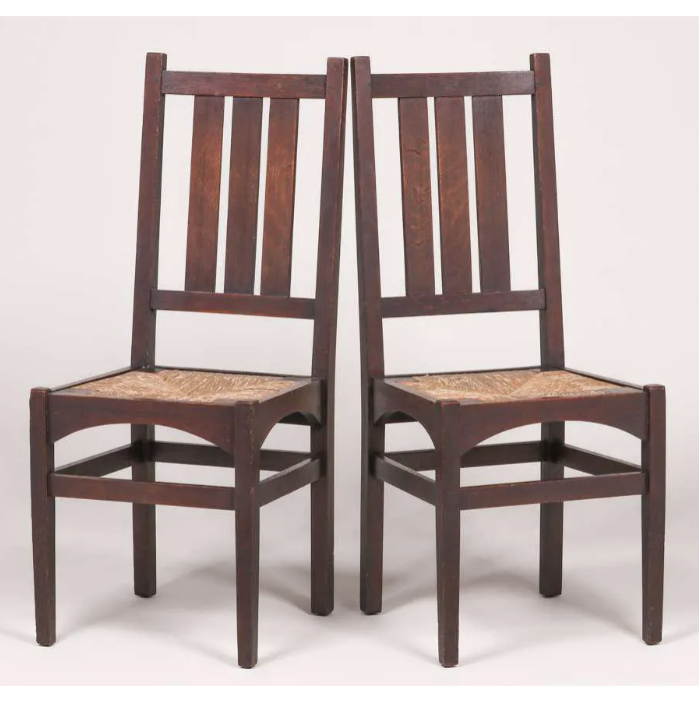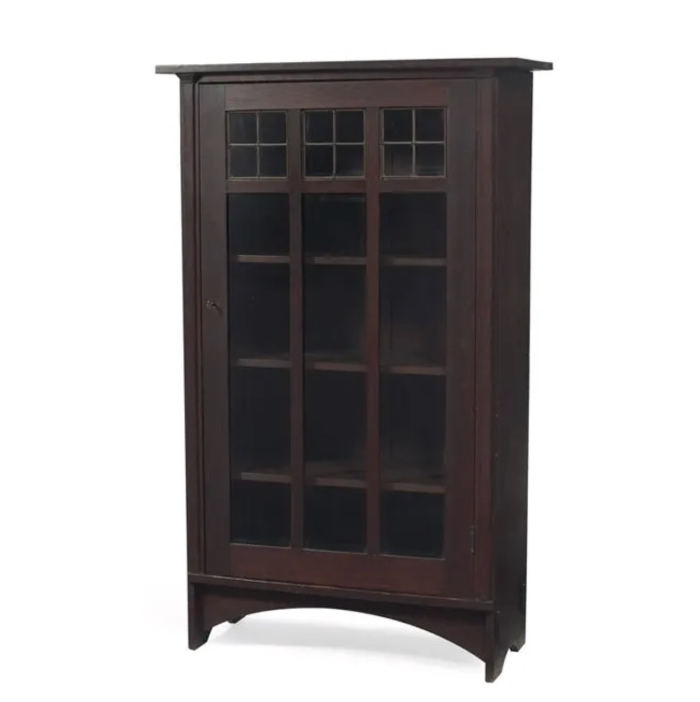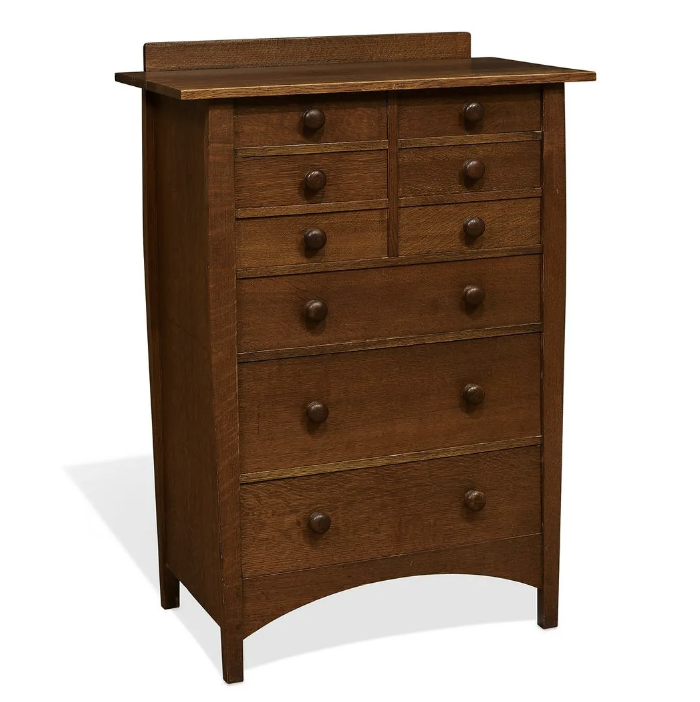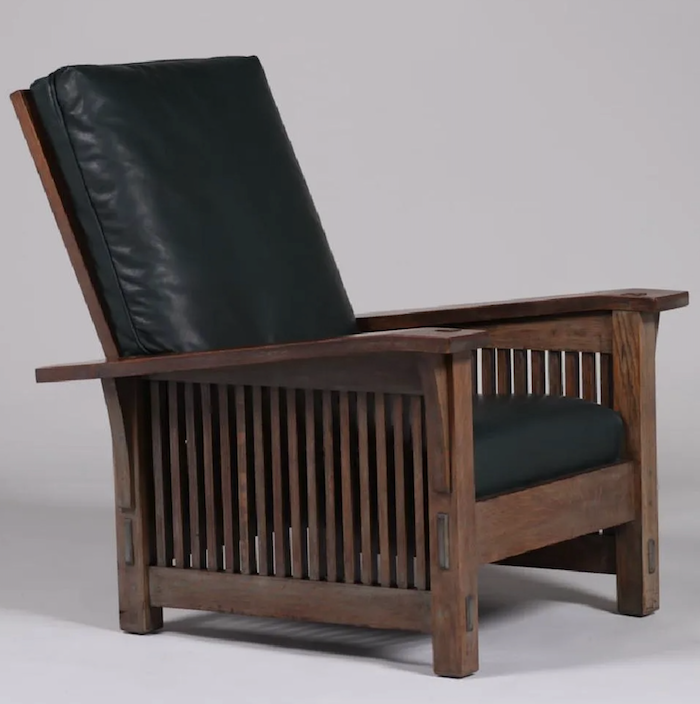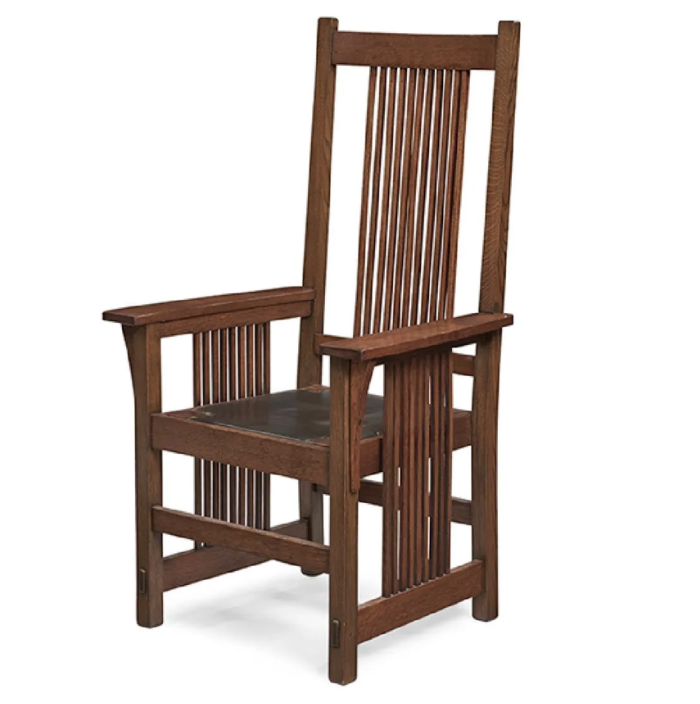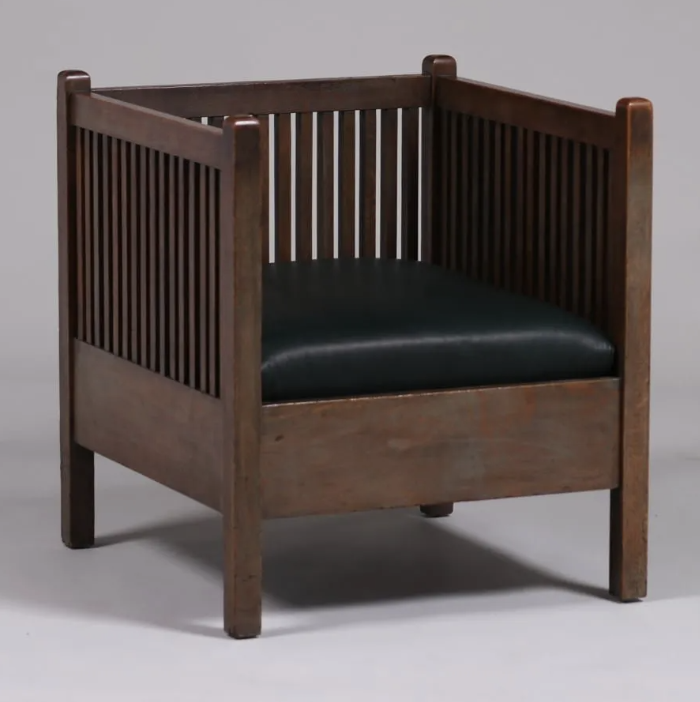The most sought after pieces by collectors of Gustav Stickley furniture tend to fall into a brief period of time between the early experimental pieces of 1901 and the most refined pieces of 1904. During this period of work there were three designers: Henry Wilkinson, LaMont Warner and Harvey Ellis. By 1905 Stickley’s designers had to find more cost-effective methods of production to compete with other manufacturers embracing the 'mission oak' concept. The spindle furniture designed by Peter Hansen were some of the only designs that remained virtually unchanged. The designers altered many other forms by eliminating details, using thinner wood and reducing the finish quality. Such changes allowed Stickley to mass produce furniture of a higher quality than any competitor.
Wilkinson was Gustav Stickley's first hire in 1900, he likely influenced the designs of many early experimental pieces. His greatest contribution was the gothic arch which can be seen in many of the earliest pieces from the divan (167) to tables like lamp table (411) and library table (409). He left in 1902 and by 1904 most of his designs were either eliminated or simplified to improve cost efficiency.
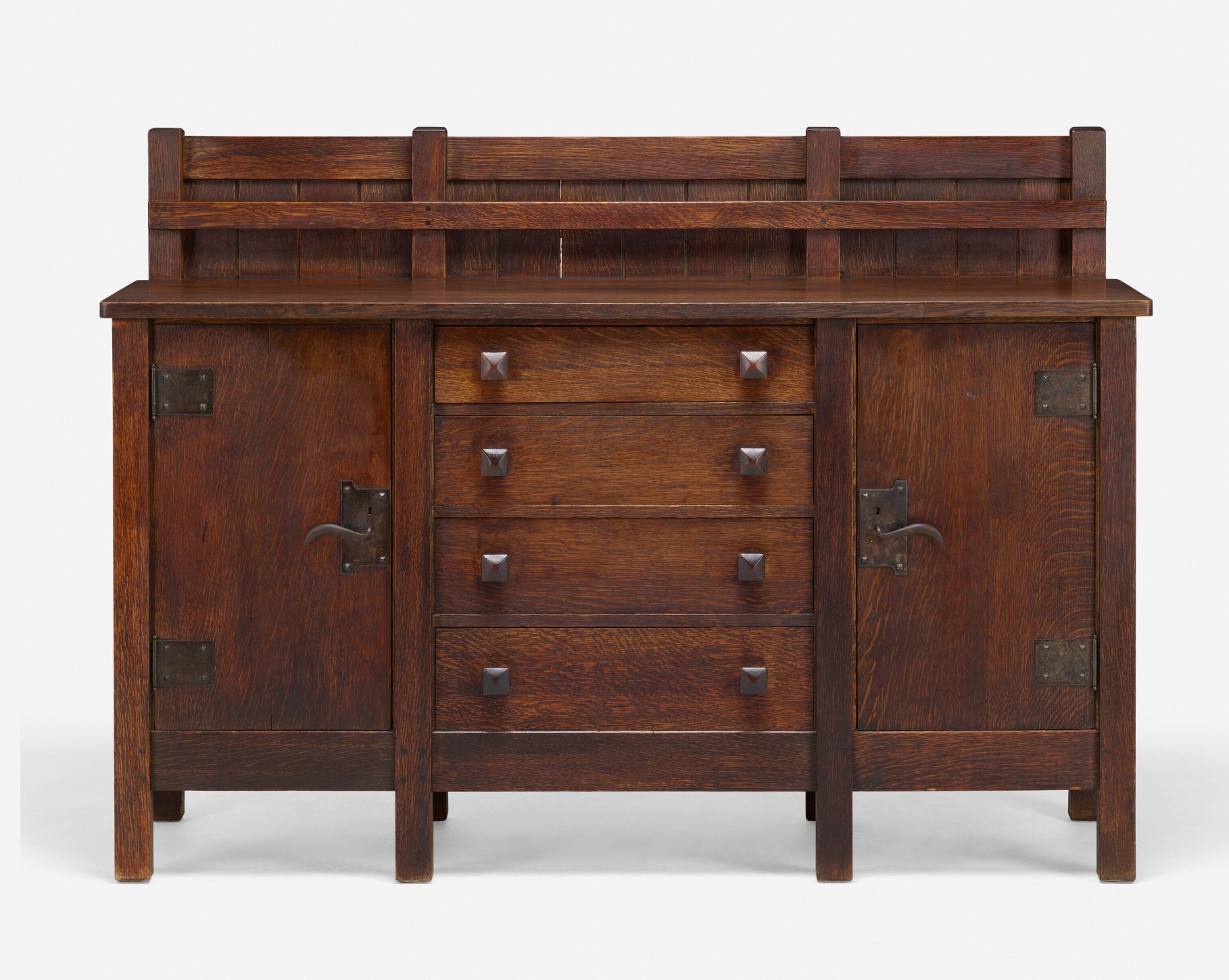
Warner's Eight Leg Sideboard, #961, 1902-3; 49.5"h x 69.75"w x 25"d.
Photo courtesy of Rago Arts and Auction Center.
In 1900, Warner moved to Syracuse, New York, to be a designer and head draftsman for Gustav Stickley's company, soon to become Craftsman Workshops. Warner worked there until 1906 and is credited for significant Stickley designs such as the eight leg sideboard and the Grueby twelve tile. Many of Warner's designs were still being produced when Stickley slid into bankruptcy in 1915.
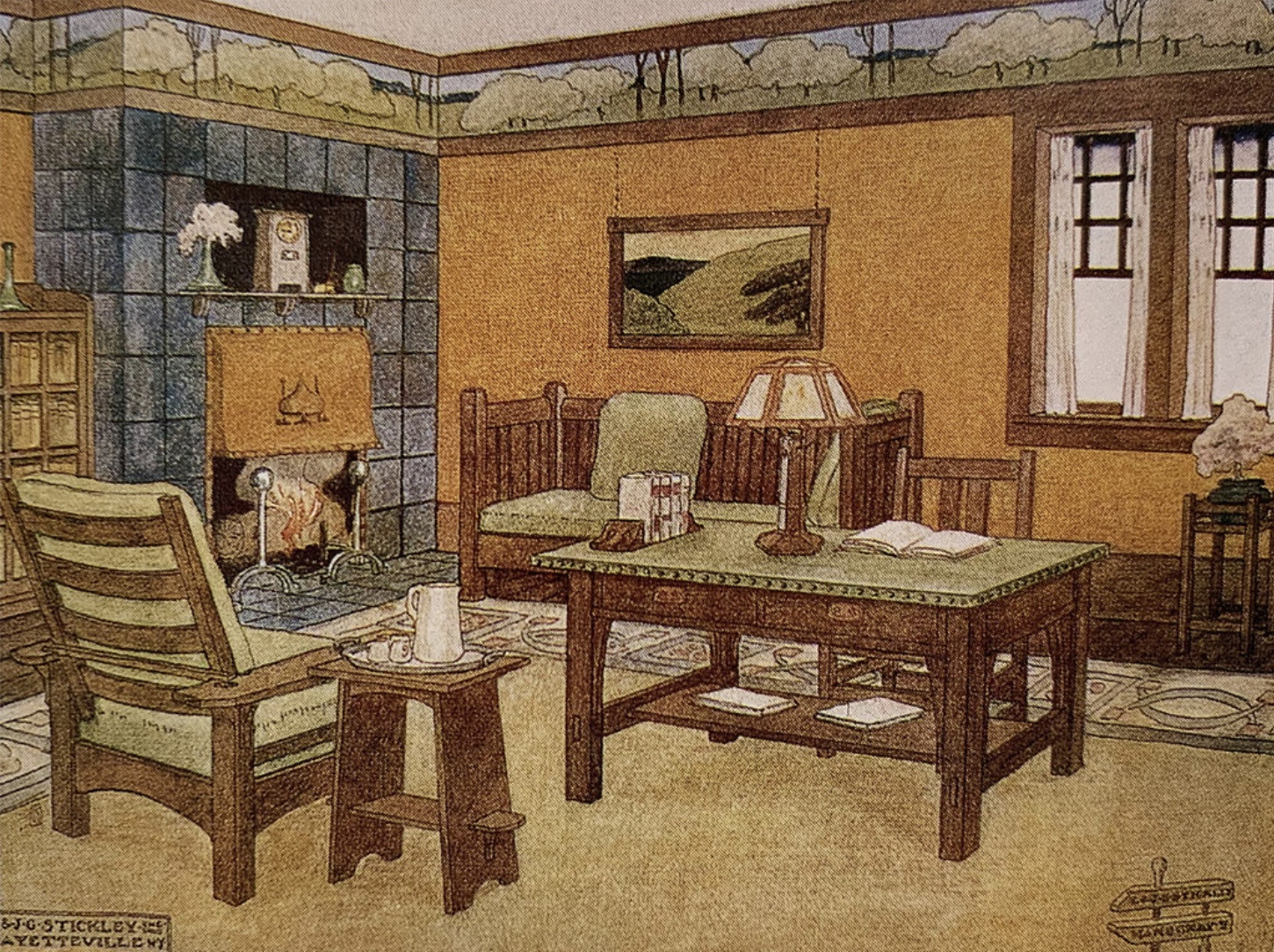
Example of Shrimpton's interior design at L & JG, Gustav Stickley's brother's company.
Photo courtesy of the Stickley Company.
Shrimpton joined the Stickley company in 1902 and left in 1907 to work for Stickley's brother at the L & JG Stickley company. Not much is known about her designs but it is thought that after working with Harvey Ellis for a year, she carried on with his ideas after his death as seen in the corbels on the side of the L&JG chafing dish stand in the this illustration found in an L & JG Stickley catalog.
Ellis's reign at Stickley was very short lived, less than a year, from 1903 to his untimely death January 2, 1904. His impact however was huge from the inlay furniture he contributed to the sweeping elegant arches and bowed sides found on bedroom pieces such as the nine draw (913), chairs (353), bookcases (700) and tables.
Hansen was the factory foreman at Stickley and is credited with spindle furniture. He went on to work at L & JG Stickley where he is thought to have designed some of their iconic designs like the Prairie Settle and mantle clock.

